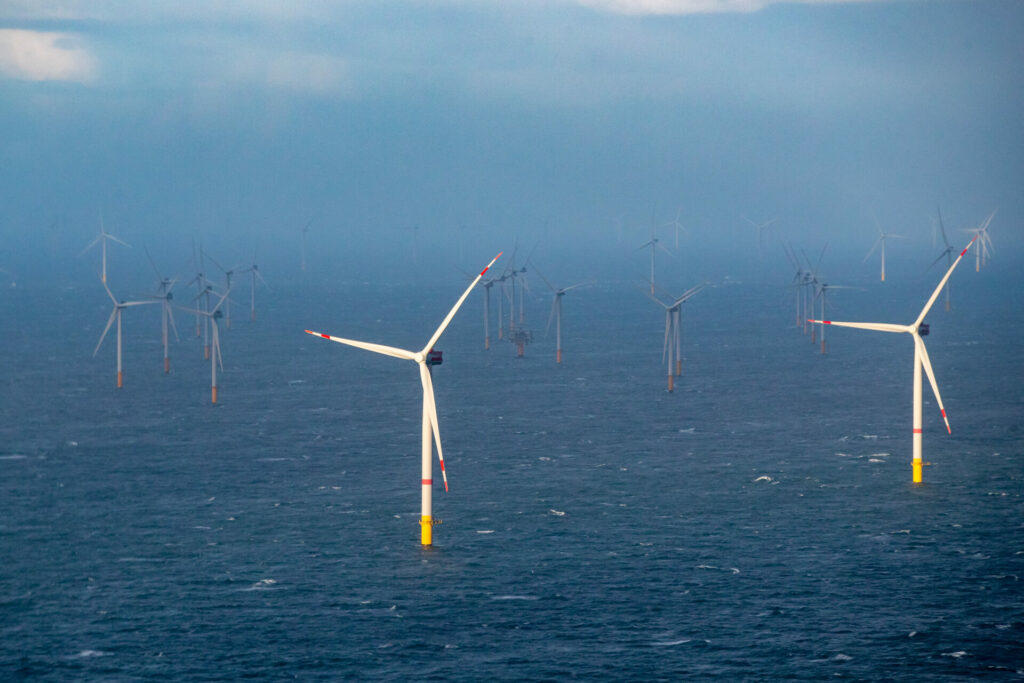Wind and solar power generated more electricity than fossil fuels for the first time in Belgium and the European Union, as the share of polluting energy sources across the EU decreased to its lowest level ever.
Wind and solar power were the largest electricity generators in Belgium from January to June this year, a report from energy think tank Ember showed. This phenomenon was recorded in almost half of the EU (13 Member States). Belgium was one of four EU countries to hit this milestone over a January-June period for the first time, alongside Germany, Hungary and the Netherlands.
Across the EU, wind and solar power accounted for 30% of electricity generated, compared with 27% from fossil fuels. Solar generation increased by 21% compared to the first six months of 2023, while wind generation rose by 9%, boosted by higher wind speeds. Wind generation from Germany and the Netherlands accounted for half of the growth.
"If hydroelectric plants are also taken into account, all renewable energy sources together accounted for half of the EU's electricity production, which is another record," the Ember report read. "Including nuclear power, almost three quarters of electricity (73%) came from low-carbon energy sources.
Unprecedented drop in emissions
Meanwhile, fossil fuel use in Belgium declined by as much as 38% compared to the same period last year. "Large falls in gas generation were responsible for fossil generation decreases in Belgium, as well as in Spain and France," the report noted.
Despite electricity demand increasing and power prices returning to pre-Covid levels, the share of fossil fuels decreased by 17% to 27% across the EU – the lowest ever. The steepest drop was recorded for coal and gas. The decline recorded in five EU countries, including Belgium, accounted for three quarters of that drop.
The increased production capacity of wind and solar energy – more than enough to cover the slightly increased demand (+0.7%) – is the main reason for the lower share of fossil fuels. "EU policies aimed at accelerating the energy transition in the wake of the gas price crisis have resulted in record capacity additions for wind and solar," the report read. Mild weather conditions (meaning lower energy usage) and a resurgence of hydropower plants also played their part.
The rise in renewable energy production and drop in fossil fuels clearly had a positive impact: emissions from the power sector were almost a third lower (-31%) than in the same period in 2022 – an even bigger drop than during the pandemic when lockdowns ground many factories and production facilities to a halt.
Related News
- Brussels households must wait until 2025 to recover cost for energy-saving renovations
- First renewable hydrogen plant in Belgium receives final investment
However, Ember experts stressed that sustaining the pace of this transition will "not be an easy feat". In Belgium, for example, the electricity market is struggling to handle the solar power generated by households and businesses, resulting in record hours of negative energy prices for the second year in a row.
High-voltage grid operator Elia repeatedly warned that solar power flowing into the grid unrestrained is a major issue for the electricity infrastructure, calling for measures to improve flexibility at moments of peak production.

